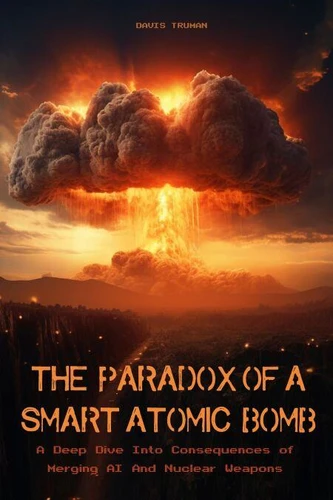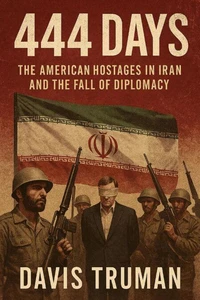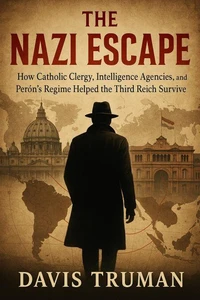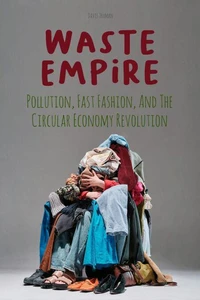The Paradox of a Smart Atomic Bomb A Deep Dive Into Consequences of Merging AI And Nuclear Weapons
Par :Formats :
Disponible dans votre compte client Decitre ou Furet du Nord dès validation de votre commande. Le format ePub est :
- Compatible avec une lecture sur My Vivlio (smartphone, tablette, ordinateur)
- Compatible avec une lecture sur liseuses Vivlio
- Pour les liseuses autres que Vivlio, vous devez utiliser le logiciel Adobe Digital Edition. Non compatible avec la lecture sur les liseuses Kindle, Remarkable et Sony
 , qui est-ce ?
, qui est-ce ?Notre partenaire de plateforme de lecture numérique où vous retrouverez l'ensemble de vos ebooks gratuitement
Pour en savoir plus sur nos ebooks, consultez notre aide en ligne ici
- FormatePub
- ISBN8230536970
- EAN9798230536970
- Date de parution30/11/2024
- Protection num.pas de protection
- Infos supplémentairesepub
- ÉditeurIndependently Published
Résumé
The risk of nuclear conflict today is at its highest point in decades. Geopolitical tensions are on the rise, and we are witnessing an unsettling increase in reckless nuclear threats and the use of nuclear blackmail. This has made the long-standing taboo against the use of nuclear weapons appear more fragile than ever before. In 2022, the famous Doomsday Clock was set to a chilling 90 seconds to midnight, marking the closest it has ever been since its inception in 1947.
This unsettling moment in history underscores just how vulnerable the world has become to the catastrophic consequences of nuclear war. In this fragile and precarious situation, it becomes even more crucial for the global community to fully grasp the profound humanitarian impact that any use of nuclear weapons would have. Whether in the case of a limited strike or a full-scale nuclear conflict, the consequences would be devastating not just for the immediate areas affected but for all of humanity and the environment.
The environmental destruction, the loss of life, and the lasting psychological and societal trauma would ripple across borders, affecting every nation. Greater awareness and a deeper understanding of these consequences are vital for mobilizing the global community to take decisive, collective action. Only through a heightened sense of urgency and responsibility can we work together to prevent the use of nuclear weapons.
This awareness is also the key to advancing the cause of nuclear disarmament. Moving away from a security model based on the dangerous idea of mutually assured destruction and toward one focused on cooperation, diplomacy, and peace is not just desirable-it's essential for ensuring the survival of humanity and the planet for future generations.
This unsettling moment in history underscores just how vulnerable the world has become to the catastrophic consequences of nuclear war. In this fragile and precarious situation, it becomes even more crucial for the global community to fully grasp the profound humanitarian impact that any use of nuclear weapons would have. Whether in the case of a limited strike or a full-scale nuclear conflict, the consequences would be devastating not just for the immediate areas affected but for all of humanity and the environment.
The environmental destruction, the loss of life, and the lasting psychological and societal trauma would ripple across borders, affecting every nation. Greater awareness and a deeper understanding of these consequences are vital for mobilizing the global community to take decisive, collective action. Only through a heightened sense of urgency and responsibility can we work together to prevent the use of nuclear weapons.
This awareness is also the key to advancing the cause of nuclear disarmament. Moving away from a security model based on the dangerous idea of mutually assured destruction and toward one focused on cooperation, diplomacy, and peace is not just desirable-it's essential for ensuring the survival of humanity and the planet for future generations.
The risk of nuclear conflict today is at its highest point in decades. Geopolitical tensions are on the rise, and we are witnessing an unsettling increase in reckless nuclear threats and the use of nuclear blackmail. This has made the long-standing taboo against the use of nuclear weapons appear more fragile than ever before. In 2022, the famous Doomsday Clock was set to a chilling 90 seconds to midnight, marking the closest it has ever been since its inception in 1947.
This unsettling moment in history underscores just how vulnerable the world has become to the catastrophic consequences of nuclear war. In this fragile and precarious situation, it becomes even more crucial for the global community to fully grasp the profound humanitarian impact that any use of nuclear weapons would have. Whether in the case of a limited strike or a full-scale nuclear conflict, the consequences would be devastating not just for the immediate areas affected but for all of humanity and the environment.
The environmental destruction, the loss of life, and the lasting psychological and societal trauma would ripple across borders, affecting every nation. Greater awareness and a deeper understanding of these consequences are vital for mobilizing the global community to take decisive, collective action. Only through a heightened sense of urgency and responsibility can we work together to prevent the use of nuclear weapons.
This awareness is also the key to advancing the cause of nuclear disarmament. Moving away from a security model based on the dangerous idea of mutually assured destruction and toward one focused on cooperation, diplomacy, and peace is not just desirable-it's essential for ensuring the survival of humanity and the planet for future generations.
This unsettling moment in history underscores just how vulnerable the world has become to the catastrophic consequences of nuclear war. In this fragile and precarious situation, it becomes even more crucial for the global community to fully grasp the profound humanitarian impact that any use of nuclear weapons would have. Whether in the case of a limited strike or a full-scale nuclear conflict, the consequences would be devastating not just for the immediate areas affected but for all of humanity and the environment.
The environmental destruction, the loss of life, and the lasting psychological and societal trauma would ripple across borders, affecting every nation. Greater awareness and a deeper understanding of these consequences are vital for mobilizing the global community to take decisive, collective action. Only through a heightened sense of urgency and responsibility can we work together to prevent the use of nuclear weapons.
This awareness is also the key to advancing the cause of nuclear disarmament. Moving away from a security model based on the dangerous idea of mutually assured destruction and toward one focused on cooperation, diplomacy, and peace is not just desirable-it's essential for ensuring the survival of humanity and the planet for future generations.























